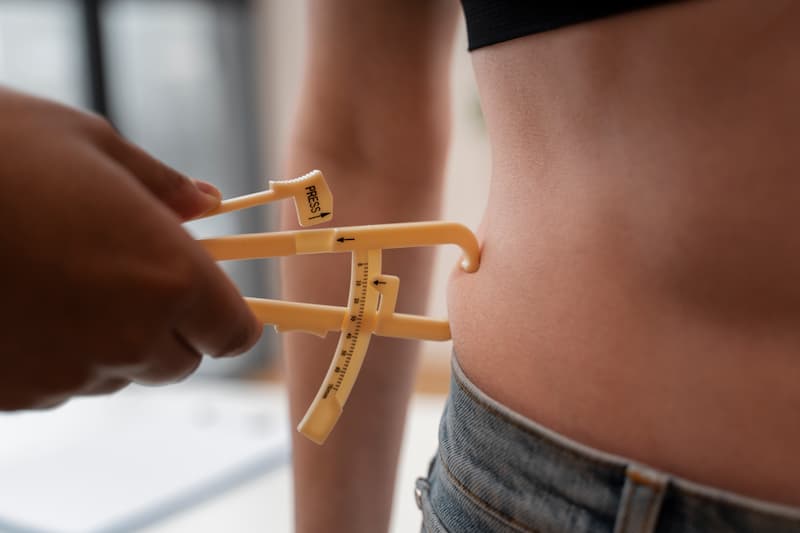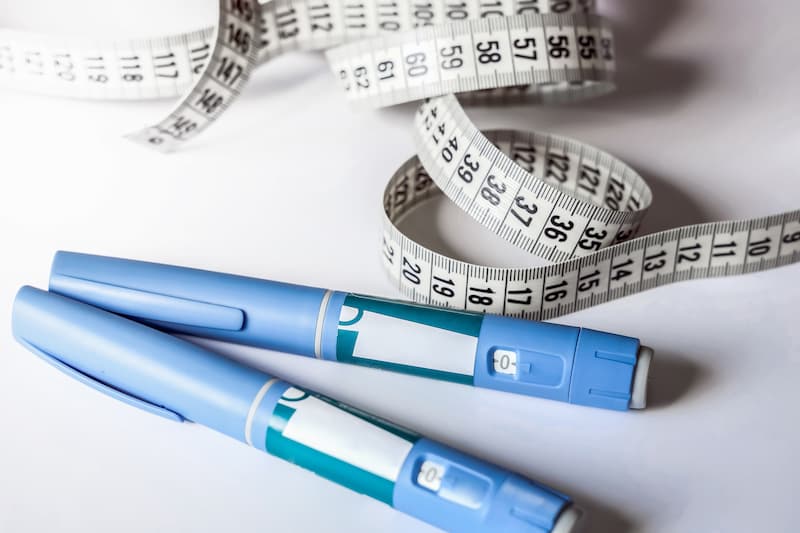Why You Need a Body Composition Analysis for Real Weight Loss Results

You’re about to begin your weight loss journey, and your first instinct is to step on the scale. While tracking weight is helpful, it doesn’t tell the whole story of what is happening in your body. So, what’s that number on the scale not telling you?
Body composition analysis is a more precise way to measure fat, muscle, and overall health changes. It can offer unique insights to guide your weight loss efforts and shape your plan and goals.
And if you want to get prescribed weight loss medication online, understanding your body composition changes isn’t just helpful—it’s a game-changer.
Let’s break down what a body composition analysis tells you and why it matters for your weight loss progress.
What Is Body Composition Analysis?
Body composition analysis provides a detailed breakdown of components that comprise total body weight. Unlike a standard scale, which only measures pounds lost or gained, this analysis differentiates between body fat, lean muscle mass, water weight, and bone density. A body composition analysis is like a financial audit for your body—it tells you just where you’re gaining, losing, and what really needs adjusting.
It also reveals how different approaches—diet, exercise, and medications—are affecting your overall body composition, allowing for adjustments that lead to sustainable and healthy weight management. A body composition analysis helps make sure you’re focused on fat reduction rather than losing valuable muscle mass or water weight.
The primary elements measured in a body composition test include:
- Body Fat Percentage: The proportion of weight coming from essential and excess fat.
- Lean Muscle Mass: How much of the body consists of muscle tissue, which plays a role in metabolism and strength.
- Visceral Fat: Fat stored around internal organs can impact long-term health.
- Water Retention: Hydration levels and excess water weight that may fluctuate.
Hydration Level
Think of your body like a sponge—sometimes it soaks up water, and other times it wrings itself out. Hydration plays a huge (and often underestimated) role in weight loss, and body composition analysis helps separate real progress from temporary water weight drama.
For example, body composition analysis measures total body water, distinguishing between intracellular water (inside cells) and extracellular water (outside cells). This distinction is important because fluid imbalances can sometimes mimic weight gain, leading you to believe you’re regaining fat when, in reality, your body is just holding more water.
Throw prescription weight loss meds into the mix, and hydration levels can swing even more wildly. Some medications may lead to mild dehydration, requiring increased water intake, while others can cause the body to hold onto excess fluid.
Muscle Mass Retention
The scale doesn’t care whether you’re shedding fat or losing muscle—it just spits out a number. But body composition analysis reveals just what you’re losing behind the scenes.
Losing weight the wrong way—by burning through muscle instead of fat—can tank your metabolism faster than a lousy diet trend. Muscle is like your body’s built-in calorie burner, keeping your metabolism humming. The less muscle you have, the harder it is to keep weight off long-term.
If you get Ozempic online, it may accelerate fat loss, but without tracking muscle mass, you won’t know if you are losing that as well—a bad deal in the long run.
Diet and Exercise Adjustment
Crash diets might drop pounds fast, but if you’re burning through muscle instead of fat, you’re setting yourself up for a metabolism meltdown. Losing muscle can make long-term weight management harder.
So, one of the greatest perks of body composition testing? It helps dial in your diet and exercise plans. Many people think that cutting calories and cranking up the cardio is the secret to weight loss, but you might be doing more harm than good without tracking body composition.
For instance, too much cardio while using prescription weight-loss drugs can torch muscle instead of fat, leaving your metabolism running on fumes. If testing shows muscle loss, tweak your diet to include more protein and add strength training to turn things around.
Your Prescription Weight Loss Drugs
Prescription weight loss medications work in various ways, including appetite suppression, blood sugar regulation, and metabolic adjustments. While dropping pounds is great, you want to be sure you’re losing the right kind.
A body composition analysis is the guidance you’ve been craving.
Your mail-order tirzepatide or semaglutide can help you lose weight quickly, but sometimes, your muscle mass also plummets. If that happens, it’s time to adjust your protein intake or start on some additional resistance training. If your analysis reveals increasing water retention, try switching up your hydration strategy and sodium intake.
By monitoring body composition, you and your doctor can make data-driven decisions about refining treatment plans so that the medications produce the healthiest possible outcomes.
How to Get a Body Composition Analysis
Several different methods can be used to perform a body composition analysis, each with a varying level of accuracy and accessibility.
- DEXA Scan (Dual-Energy X-ray Absorptiometry): This highly accurate test provides detailed insight into body fat, muscle, and bone density. It is often available at medical facilities or sports science labs.
- Bioelectrical Impedance Analysis (BIA): BIA is a standard method used in smart scales and handheld devices. While convenient, its accuracy can be affected by your hydration levels.
- Hydrostatic Weighing: This water displacement method is extremely precise but less commonly available because it requires specialized equipment.
Final Thoughts
The scale only tells part of the story—body composition analysis gives you the whole plot. Breaking down fat, muscle, and hydration levels helps you track real progress, not just random weight swings.
If you’re using prescription weight loss medications, this tool can help you optimize results and understand how your weight loss affects your whole body. Make every pound lost meaningful with a body composition analysis.
FAQs
1. What is body composition analysis, and why is it important for weight loss?
It measures the percentage of your body that consists of fat, muscle, and water weight. Knowing your body’s composition can provide a clearer picture of your weight loss progress than a traditional scale can.
2. How can body composition analysis help with prescription weight loss?
Body composition analysis allows you and your doctor to track how your body changes as you lose weight. This information can tell you whether the weight loss comes from fat or muscle. It is also useful in helping fine-tune your medication dosage, diet, and exercise routine.
3. Can weight loss shots online affect body composition?
Yes, weight loss injections available online influence fat metabolism and appetite. Body composition can help confirm that you are losing fat and not lean muscle mass.
4. Is body composition analysis better than tracking weight alone?
Yes, body composition analysis provides more information about the changes in your body than just the number on the scale. It distinguishes between fat, muscle, and water. With a clearer picture of your body composition, you can verify that you are losing those unwanted pounds of fat.
5. How often should I check my body composition?
If you are taking a prescription weight loss medication like semaglutide or tirzepatide, you should check your body composition regularly. Repeating tests every few months or as recommended by a healthcare provider will help keep you informed about your weight loss.
6. Can body composition testing help me decide which diet works best?
Yes. The food you eat can have a significant influence on how much and what type of weight you lose. If you are shedding muscle rather than that unwelcome belly fat, you may need to make changes to your diet and exercise habits to support your weight loss goals.
7. Do body composition tests hurt?
No. Body composition tests are non-invasive procedures. Many can be performed outside of a doctor’s office and do not require any recovery time.
8. Are smart scales that measure body fat accurate?
There are many methods that promise to measure or approximate body composition. Some are more accurate than others. Smart scales provide estimates but are less precise than medical-grade tests. For an accurate assessment, talk to your doctor about measurement options.
9. How does hydration impact body composition readings?
Water makes up a significant portion of your body and contributes significantly to your weight. It is also essential for many body functions. Dehydration can lead to inaccurate body composition measurements, so hydrate properly.
10. Can I track my body composition at home?
Yes, with bioelectrical impedance smart scales. Professional tests are more accurate, but a scale can provide you with body composition estimates and help you track your progress.
Video

Infographic
Body composition analysis accurately measures fat, muscle, and overall health changes, providing valuable insights to guide your weight loss journey. Check out this infographic to discover what a body composition analysis reveals and why it’s essential for your progress.



